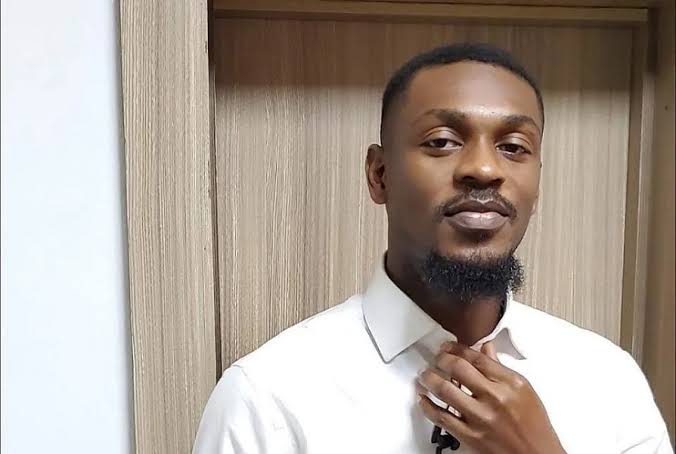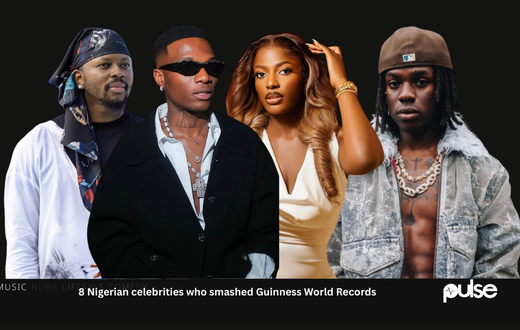Inside Big Brother Naija: Adekunle Olopade Sheds Light on Housemate Dynamics
Life inside the Big Brother Naija (BBNaija) house is far more complex than what viewers see on their screens. Adekunle Olopade, a former BBNaija contestant who featured in the “Level Up” and “All Stars” editions, recently revealed eye-opening details about the level of intimacy and exposure within the house, sparking fresh debate across Nigeria and beyond.
The Reality Behind the Cameras
In a recent conversation on Pulse’s podcast, Adekunle provided an insider’s perspective on what truly unfolds when contestants are cut off from the outside world. Addressing controversies stemming from viral videos involving housemates Koyin, Isabella, Jason Jae, and Sultana—clips that have ignited heated discussions on social media—he clarified the realities of cohabiting in a confined, surveilled environment.
According to him, it is entirely normal for housemates to see each other unclothed due to the unavoidable closeness and lack of privacy.
Intimacy and Attraction: Unavoidable by Design?
Adekunle explained that the Big Brother house is intentionally structured to foster interactions and strip away personal barriers. With contestants sharing sleeping spaces, bathrooms, and everyday routines, complete privacy quickly becomes a fantasy. He shared,
“All the housemates see each other naked, in case you don’t know. So, you cannot be in a house with somebody that you see without clothes almost everyday and not be attracted to the person. It won’t work.”
He noted that although viewers may judge romantic or intimate behaviour, those living in the house are constantly exposed to each other, which naturally leads to relationships forming—even if unintended at first.
The Judgement of the Audience vs. Daily Life in the House
Adekunle drew attention to what he described as a disconnect between public expectations and the housemates’ lived experiences. He pointed out that external observers often rush to judge contestants for becoming emotionally or physically close, yet they overlook the artificial bubble and forced proximity that the show’s format creates.
“A lot of people who watch Big Brother Naija reality show are very hypocritical. Secondly, there is actually nothing wrong with two people who like each other deciding to get intimate.”
He argued that, while the sight of budding romances may come as a shock to the audience, it is a natural by-product of living with strangers—sometimes for months—without access to the outside world or normal sources of support.
What Makes the Big Brother House Different?
- Constant Surveillance: Contestants are being watched 24/7, adding pressure and influencing decisions, yet creating a sense of isolation from the real world.
- Lack of Privacy: From showers to changing rooms, the house leaves little space for modesty.
- Shared Spaces: Housemates eat, sleep, argue, and socialise in close quarters, erasing typical boundaries.
- Emotional Bonds: With family and friends out of reach, housemates seek companionship—and sometimes intimacy—within the group.
These conditions often accelerate connections in ways that wouldn’t happen so quickly outside the house. According to media analyst Toyin Ige, “People underestimate how quickly bonds can form when individuals are thrown together with no external distractions, especially in the high-pressure atmosphere of reality TV.”
Nigerian and African Reactions: Is the Criticism Fair?
BBNaija commands massive followership from Nigeria, Ghana, and across West Africa. The show is both loved and controversial, with many families, social commentators, and even religious leaders weighing in.
Some Nigerians argue that intimacy captured on national TV is inappropriate. Others counter that as adults, housemates are entitled to their choices, particularly in such an unusual environment. Similar debates have played out in Ghana and other African countries where Big Brother franchises exist, highlighting the tension between tradition, modernity, and reality television’s global influence.
From In-House Dynamics to Post-Show Realities
For many contestants, the perception that forms during the show can shape their lives after BBNaija. Adekunle, for instance, has faced both support and criticism—reflecting the divided opinions of the larger society. Relationships formed in the house may turn into real partnerships, remain as memorable connections, or fade with time. Meanwhile, audience judgments often follow ex-housemates into their careers, affecting endorsements, fan bases, and personal branding opportunities.
Entertainment reporter Ada Obi explains, “BBNaija isn’t just a game show. For many young Africans, it’s an opportunity for fame, networking, or even finding genuine companionship. But the public sometimes expects contestants to resist all temptation, forgetting the artificial nature of their reality.”
Why Is BBNaija Still So Popular?
BBNaija continues to shape popular culture partly because it mirrors—while magnifying—real-life social issues: relationships, ambition, loyalty, and the boundaries of privacy in the modern era. As conversations grow about housemate behaviour, the show helps start honest dialogues about youth, morality, and personal expression across West Africa.
According to industry watchers, the drama surrounding BBNaija brings critical attention to how society negotiates old and new norms, spotlighting issues that matter to young Africans—like freedom of choice, mental health, and what it means to live “authentically” when the world is watching.
Global Trends: How Does Big Brother Naija Compare?
While BBNaija often sparks its own brand of controversy, similar reality shows around the world face comparable issues. Whether in South Africa, the UK, or the US, viewers frequently debate the limits of privacy, romance, and acceptable conduct for reality stars. What stands out for BBNaija, however, is its unique blend of African culture, values, and vibrant personalities—a mix that resonates both locally and with the diaspora.
Final Thoughts: Redefining Entertainment, One Season at a Time
Adekunle Olopade’s honest account reminds viewers that behind the edited episodes and viral highlights, real people are living—and sometimes struggling—with the pressures of extraordinary circumstances. As viewers tune in to the next season or debate clips online, perhaps there’s value in looking beyond quick judgments to understand the deeper dynamics at play inside the BBNaija house.
What do you think—is it fair to criticise housemates for forming connections or is it simply human nature at work under extreme conditions? How should reality TV balance entertainment with respect for personal boundaries?
Share your views below and join the conversation!
Sell or share your exclusive story by emailing story@nowahalazone.com.
For general support or to send in news tips: support@nowahalazone.com.
Connect with us on social media for more engaging gist and trending updates:
Facebook |
X (Twitter) |
Your story matters—let’s share West African entertainment with the world!










